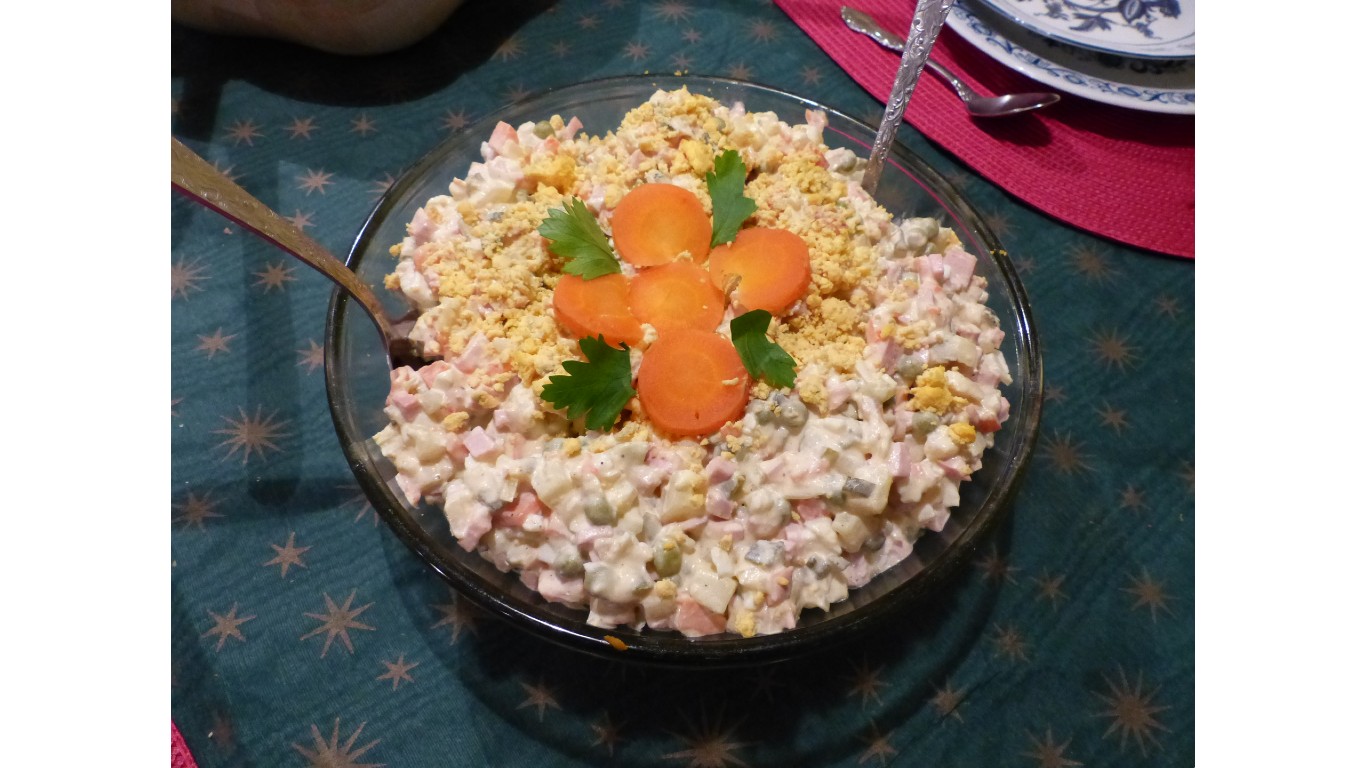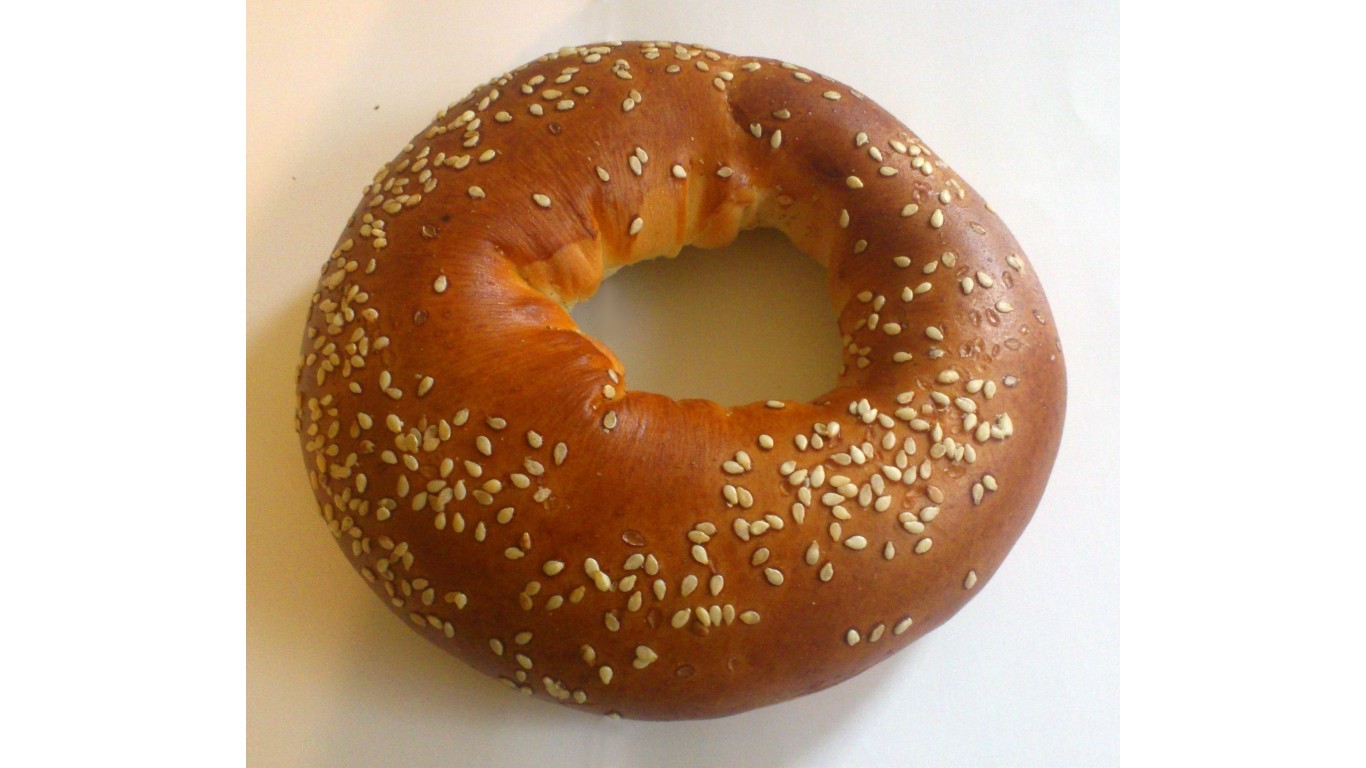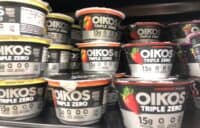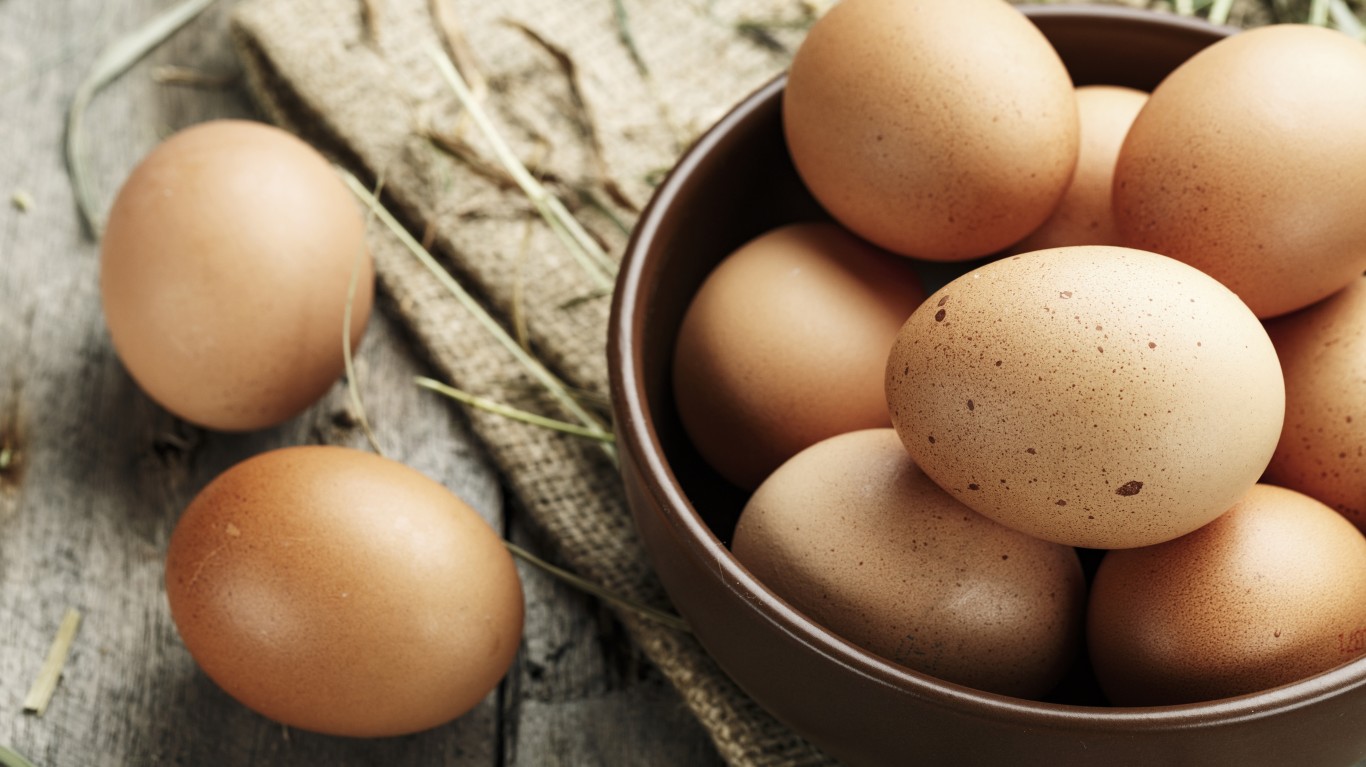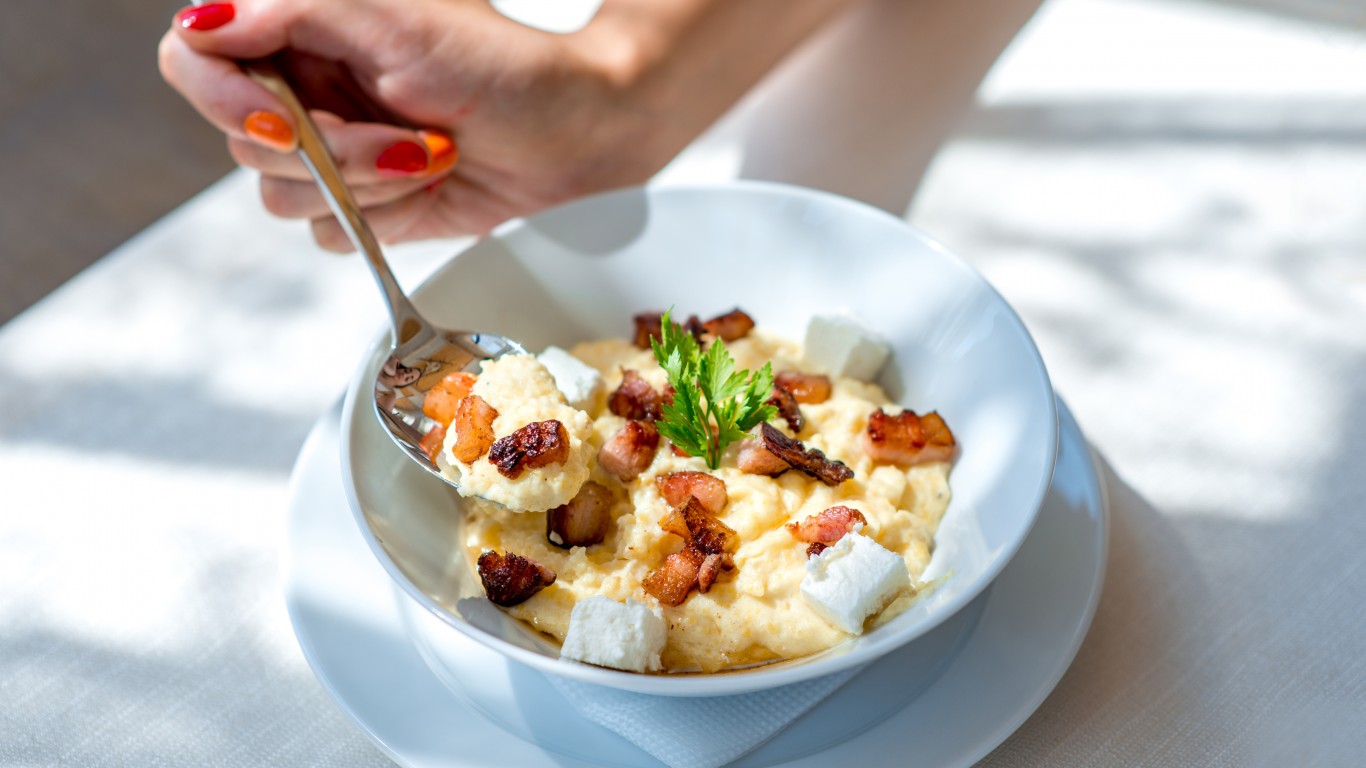
Ukraine is one of the largest and most populous European countries, and its traditional cuisine is incredibly varied. As the country faces the Russian invasion, we’re honoring the resiliency of the people of Ukraine by celebrating its most popular foods.
Ukraine is known as “the breadbasket of Europe” due to the crops that grow in its abundance of rich, dark soil. Therefore, many of its traditional foods involve grains such as wheat and rye; many also descend from ancient peasant dishes that made good use not only of grains but also of such staples as potatoes, cabbage, mushrooms, and beets. (Grains, seed oils, and other agricultural products are among the items exported to some of Ukraine’s top trading partners.)
Another hallmark of Ukrainian cuisine is the multi-stage cooking process of many dishes; they’re fried and then stewed, for example. Pork and sour cream also make regular appearances.
The majority of Ukraine’s staple dishes can also be found in some form in other Eastern European, including Russia. Some are Russian in origin, in fact, but have also become typical in Ukraine – yet another indication of the extent to which the two countries and cultures are intertwined.
Borscht, the well-known beet soup that has countless iterations, is the national dish of Ukraine – where it is known as borshch. Other dishes virtually synonymous with the country’s cooking include varenyky (boiled dumplings similar to Poland’s pierogi) and a stuffed cabbage preparation called holubtsi.
To assemble a list of classic dishes of Ukrainian cuisine, 24/7 Tempo consulted several epicurean and cultural sites, including Ukrainian Food, Taste Atlas, Chef’s Pencil, and The Culture Trip.
Click here to see 20 classic dishes of Ukrainian cuisine
Classic Ukrainian cuisine is full of variety and bursting with big, comforting flavors. This list includes a wide range of soups, salads, baked goods, appetizers, and main dishes. Perhaps they’ll inspire you to cook up some traditional Ukrainian fare, and share the cuisine of Ukraine with your own family.
Kotlety po-kyivsky
> What it is: Chicken Kiev
Perhaps the most famous dish associated with Ukraine is this one, named after the country’s capital city, Kiev. It’s made by stuffing a thinly-pounded chicken filet around cold seasoned butter, then breading and frying it. Yes, it’s insanely rich and decadent, and yes, it’s extremely delicious. It isn’t actually Ukrainian in origin, however. It was apparently invented in Russia, possibly by the acclaimed French chef Marie-Antoine Carême in 1818, in the court of Emperor Alexander I of Russia.
[in-text-ad]
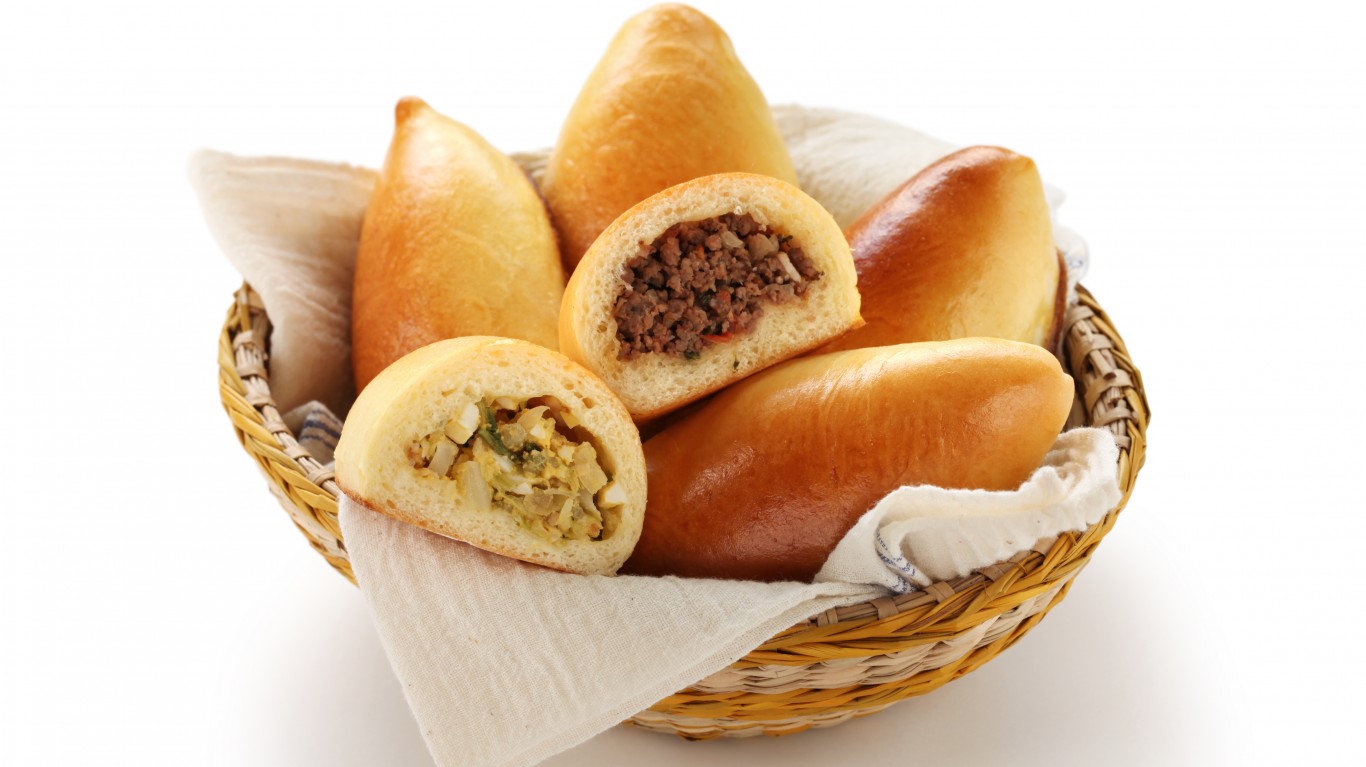
Pyrizhky
> What it is: Savory baked pastries with various fillings
Pyrizhky (pirozhki in Russian) are baked or fried boat-shaped buns stuffed with a wide variety of fillings. Typical fillings include ground meat, mashed potatoes, mushrooms, and cabbage; sweet variations include apple, cherry, apricot, or sweetened fresh cheese. They’re a super-popular street food.
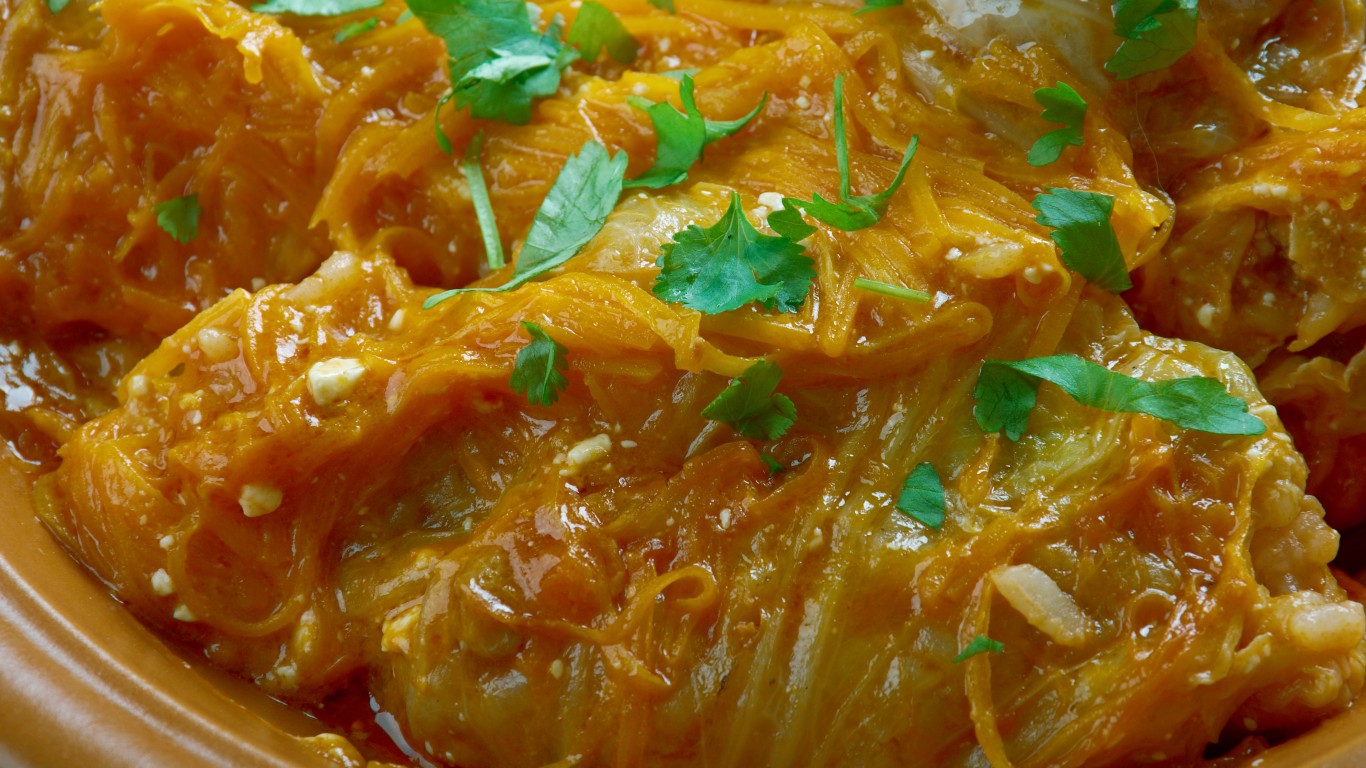
Holubtsi
> What it is: Stuffed cabbage or grape leaves
Stuffed cabbage is ubiquitous in much of the world’s cuisines, from Finland to Egypt, but it’s especially popular in Eastern Europe. There are several variations on the dish in Ukraine, but in general cabbage leaves are rolled up around a mixture of rice, buckwheat groats, or another grain; ground pork; and seasonings. They’re then stewed in a tomato- or mushroom-based sauce. Occasionally, the cabbage will be replaced by beet leaves or grape leaves.
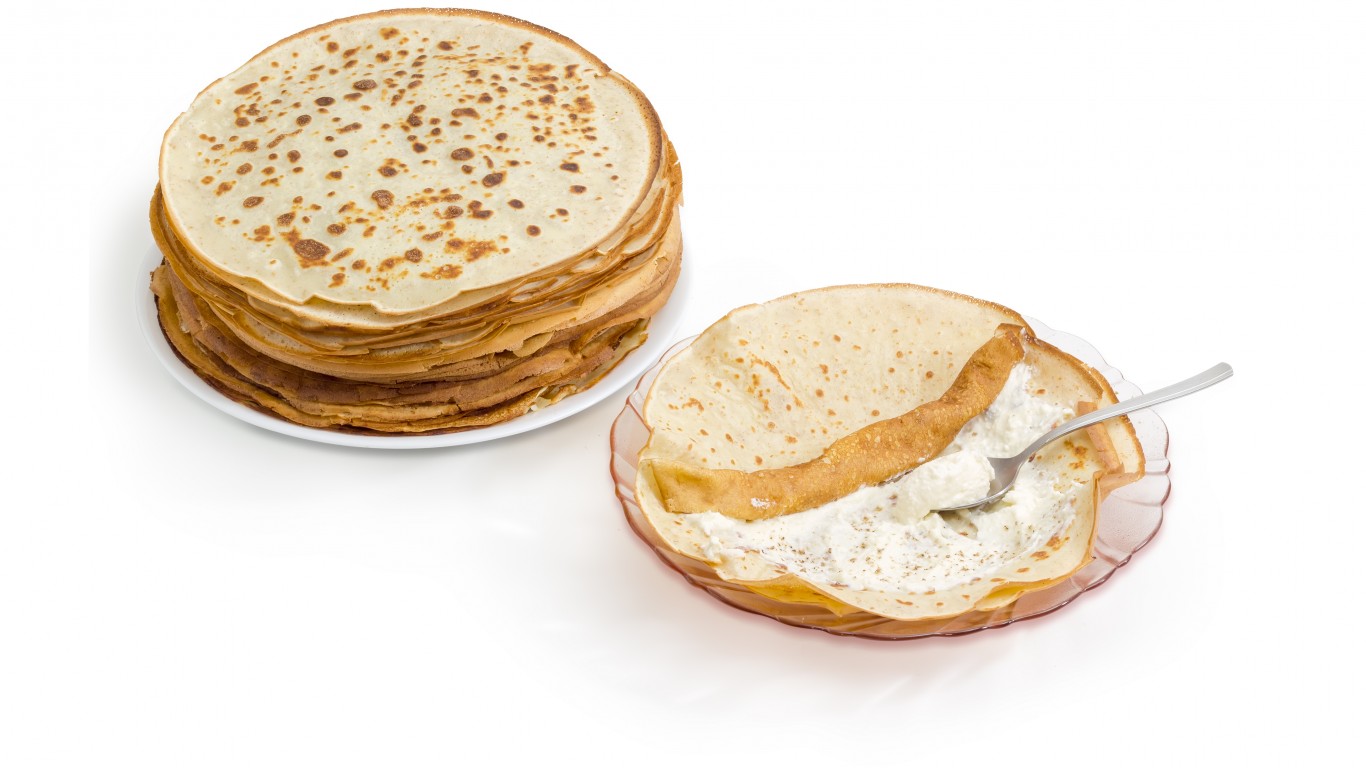
Mlyntsi
> What it is: Blintz-like pancakes with sweet or savory fillings
Mlyntsi (called blini in Russia) are extremely popular in Ukraine; they’re thin pancakes rolled around a sweet or savory filling, similar to blintzes. Fillings can include cabbage, minced meat, mushrooms, cottage cheese, or fruit, and they’re usually eaten with sour cream. “Mlyntsi” is the name of the pancake itself; once it’s rolled the resulting dish is called nalysnyky.
[in-text-ad-2]
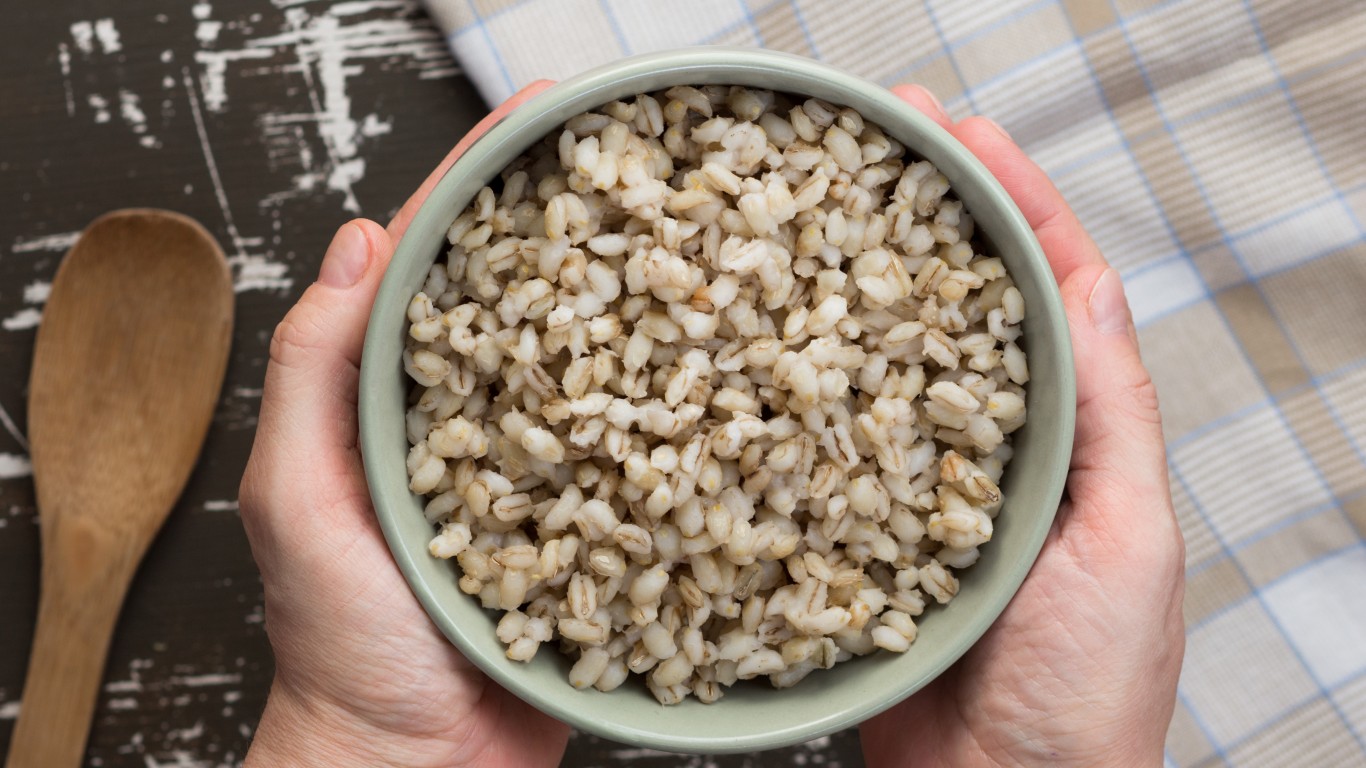
Kasha
> What it is: Buckwheat groats with pork rinds
A hallmark of Slavic cuisine for more than 1,000 years, kasha is the name for buckwheat, both raw and cooked into a porridge. It can be simply cooked with butter, cooked with milk and sugar for breakfast, or stewed with onions and pork rinds to make a hearty main course or side dish. In Ukraine, the term “kasha” may also be applied to other grains including wheat, barley, and rye.
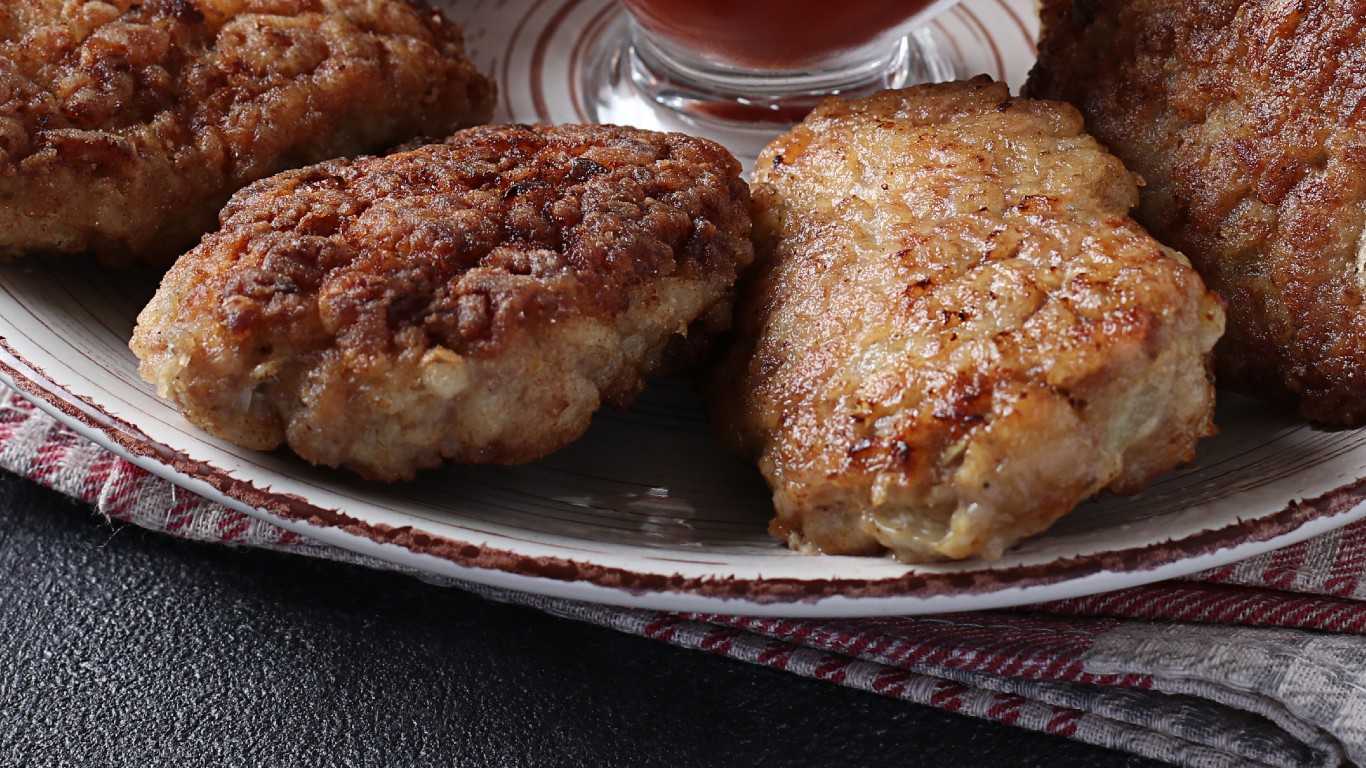
Mazuricks
> What it is: Ground turkey and cheese cutlets
Mazuricks are juicy ground turkey-based cutlets, which more closely resemble slightly flattened meatballs. They’re made by combining turkey with melted butter, eggs, and cheese before breading and pan-frying them in garlic-infused oil until crispy. Mazuricks are especially popular at Ukrainian parties and festivals.
[in-text-ad]
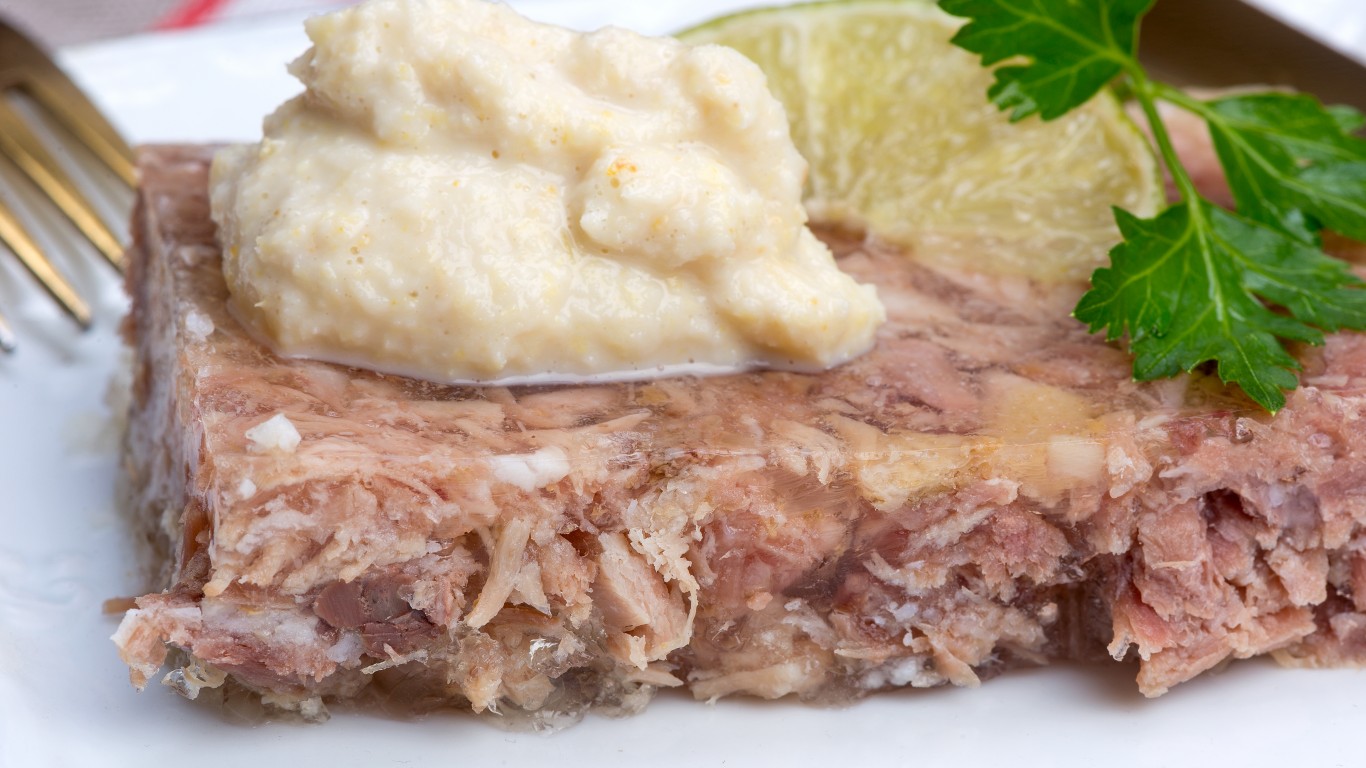
Kholodets
> What it is: Shredded pork in aspic
Kholodets is the Ukrainian name for a dish made by pork bones and meat cooked for hours, until a collagen-rich broth is made. This is then cooled into a jelly-like aspic, which is then combined with chopped pork and served cold with horseradish or mustard.
Kruchenyky
> What it is: Stuffed pork roll
Kruchenyky (also called zavyvantsi) is the name for a wide variety of stuffed meat rolls. Pork is usually the main protein used, but beef, chicken, or even fish can be substituted. The stuffing options also vary by region, but the thinly-pounded meat is usually rolled up around mushrooms, onions, cheese, cabbage, or prunes. The results are traditionally topped with sour cream and baked, and usually served as a hot appetizer.
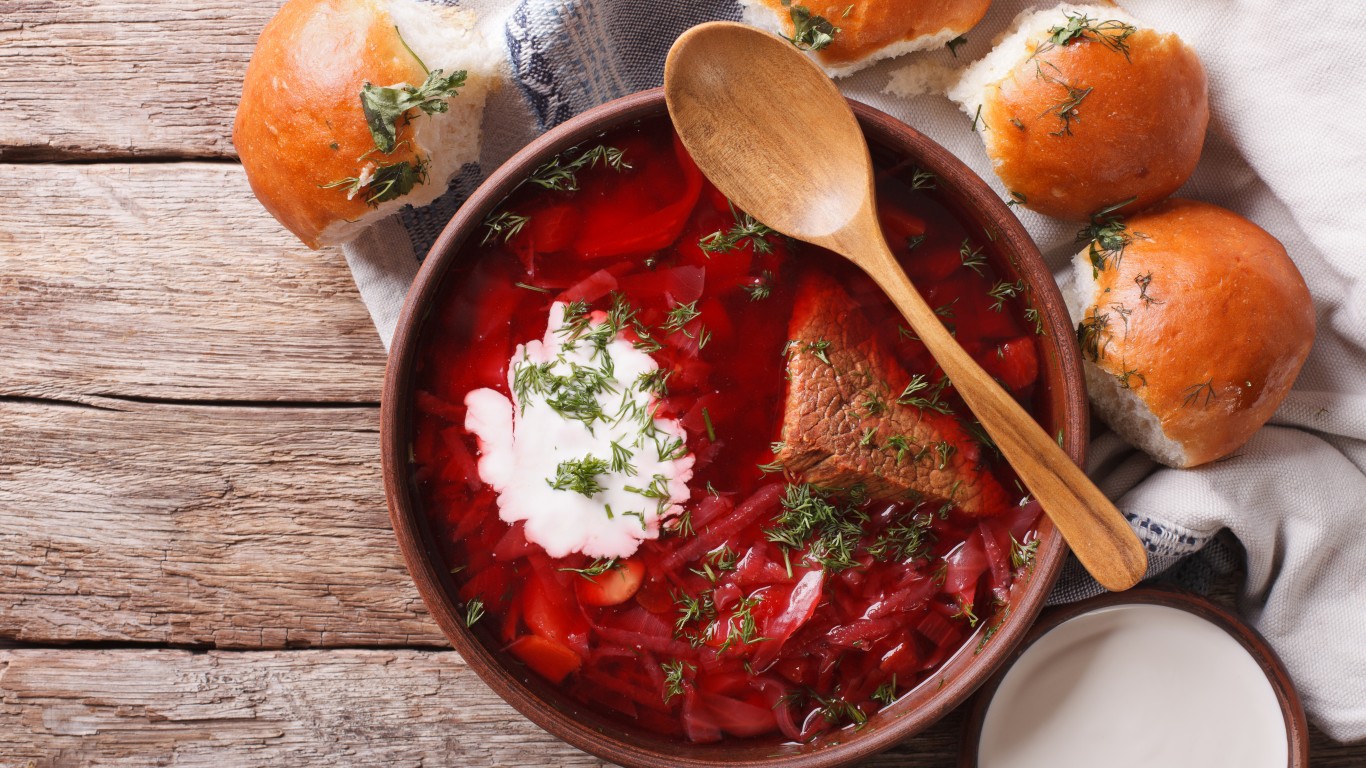
Borshch
> What it is: Borscht (soup of beets and other ingredients)
Borshch, or borscht, is the best-known Ukrainian soup and a cornerstone of the country’s cuisine. Every province has its own recipes, but traditional Ukrainian borshch starts with a stock made with beef, pork, or both; this simmers with root vegetables and (most importantly) beets and beet juice. Chunks of meat are also included in some recipes. The sweetness of the beet and addition of “beet sour” (fermented beet juice) lends it a signature sweet-and-sour flavor, and the richness is mellowed by a dollop of sour cream. It’s often served alongside pampushky, rolls glazed with oil and garlic.
[in-text-ad-2]
Zelenyj borshch
> What it is: Sorrel soup
Zelenyj borshch, or green borscht, is a lighter soup made from leafy greens, traditionally tart sorrel in the springtime; other greens can include spinach, chard, and nettles. The greens are simmered with a meat- or vegetable-based broth, and the soup is traditionally finished with boiled potatoes, hard-boiled eggs, and a sprinkling of dill.
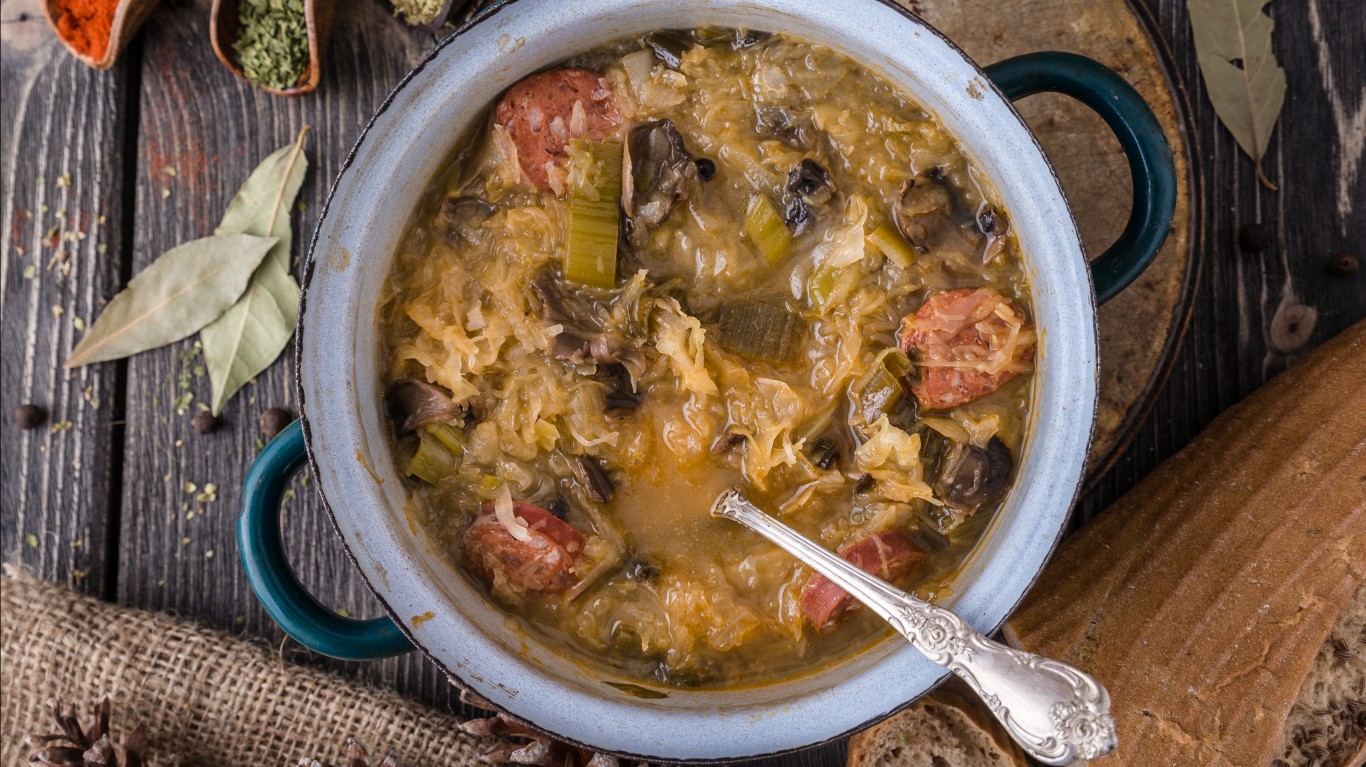
Kapusta
> What it is: Cabbage soup
Kapusta is both the Polish and Ukrainian word for cabbage and sauerkraut, and in Ukraine it’s also the name of a popular cabbage-based soup. Every family has its own recipe, but a classic version is made by sautéing onions with bacon and kielbasa and simmering it with sauerkraut and tomato soup; some varieties are more of a stew made with sauerkraut, onions, and kielbasa (sometimes called kobasa).
[in-text-ad]

Banosh
> What it is: Corn porridge with sour cream and cheese
A dish that’s especially popular in western Ukraine, banosh (or banush) is a cornmeal-based porridge enriched with cream and usually topped with pork rinds, mushrooms, and a creamy sheep’s milk cheese called bryndza. It’s most closely identified with the Hutsul people, who live near the foothills of the Carpathian Mountains and traditionally serve it at holiday feasts.
Olivier
> What it is: Russian salad
Invented by Belgian chef Lucien Olivier – the chef at one of Moscow’s most celebrated restaurants, The Hermitage – in the 1860s, Olivier salad, also called Russian salad, remains popular throughout Russia and post-Soviet countries including Ukraine. (Curiously, it’s also a staple at Spain’s tapas bars.) It’s a mixture of diced vegetables and meats, usually some combination of potatoes, carrots, pickles, peas, hard-boiled eggs, and tart apples; meats can include chicken, bologna, ham, or hot dogs. It’s then tossed with a mayo-based dressing. Olivier salad is a popular appetizer served during New Year’s Eve celebrations.
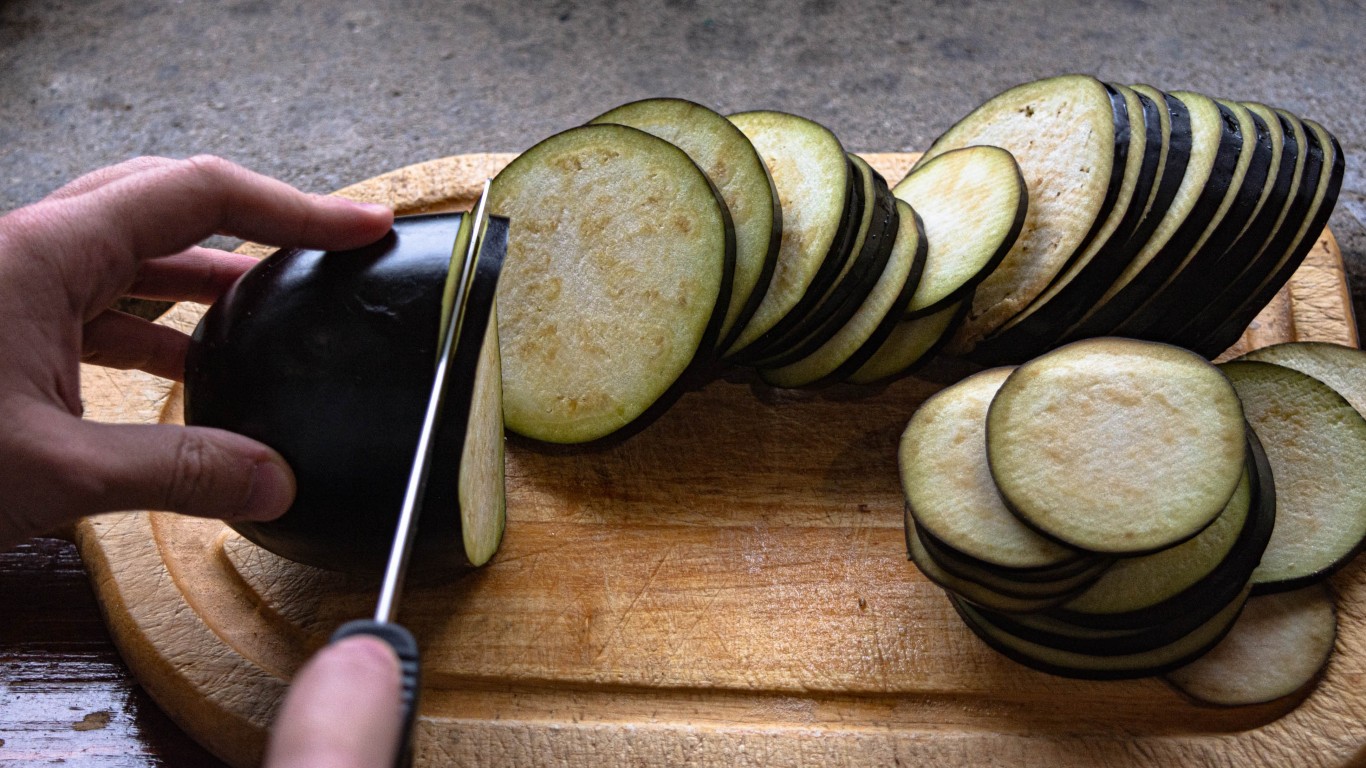
Baklazhany mezhyvo
> What it is: Stewed eggplant with vinegar
Mezhyvo is a traditional Ukrainian appetizer made by stewing vegetables, usually including eggplant. Sliced eggplant is lightly fried before being braised with tomatoes, onions, and a bit of vinegar and sugar, and the dish is served cold.
[in-text-ad-2]

Syrniki
> What it is: Cheese curd fritters
A super-popular snack in Ukraine as well as Russia, syrniki are cheese fritters or pancakes made by combining quark (a type of fresh, creamy cheese) with flour, eggs, and sugar; shaping them into cakes; and pan-frying them in oil or butter. They’re browned on the outside and creamy on the inside, and are usually eaten for dessert or breakfast, topped with preserves, jam, sour cream, and/or melted butter.
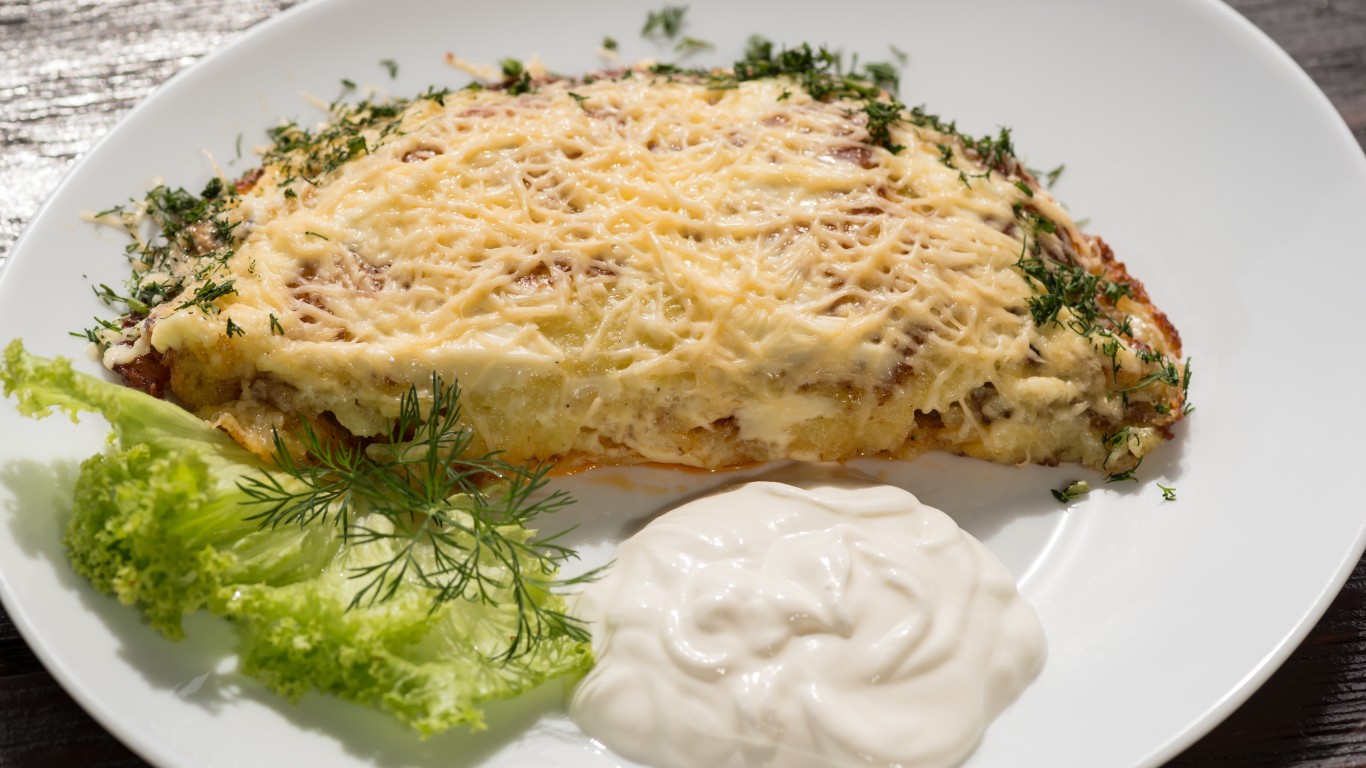
Deruni
> What it is: Thick potato pancakes with sour cream
Deruni is the Ukrainian name for one of the most universally beloved Eastern European dishes, potato pancakes. They’re made by combining grated raw potatoes with eggs, a bit of flour, and occasionally grated onions into pancakes, which are then fried until crispy.
[in-text-ad]
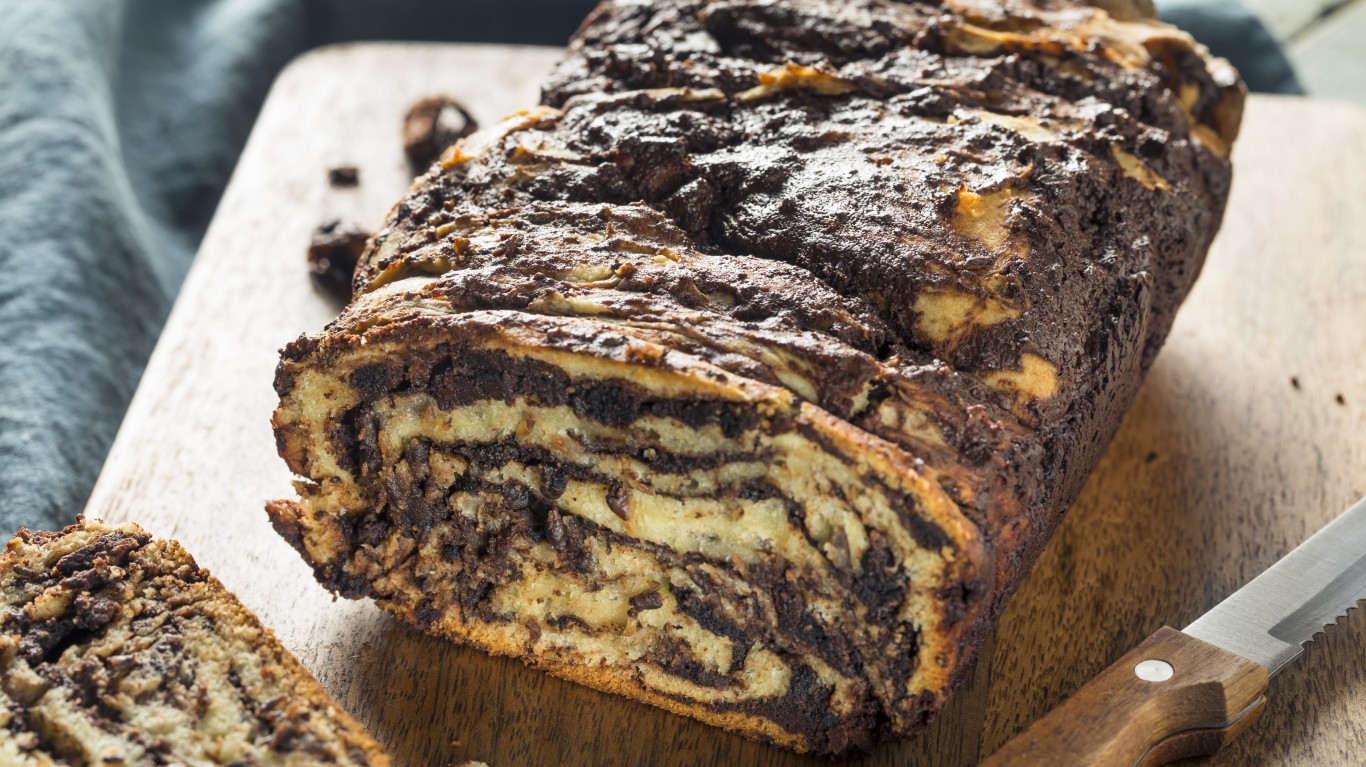
Babka
> What it is: Braided sweetened bread
Babka is a traditional Eastern European sweet braided bread, popular among the Jewish communities of Ukraine, Poland, and Russia. It starts with a yeast-leavened dough (similar to challah dough) that’s rolled out, spread with a sweet filling (usually chocolate, Nutella, cinnamon, fruit, or cheese), rolled up, braided, moistened with a sugar syrup, and baked. It’s a perfect breakfast or dessert, and is also a popular treat in New York City.
Bublik
> What it is: Bagel-like roll
A Ukrainian relative of the bagel, bublik are ring-shaped leavened bread rolls that are briefly boiled before baking. They’re usually larger, with a larger hole, than bagels, and are drier, denser, and chewier. They can be eaten plain, dunked into tea, or spread with jam or sour cream
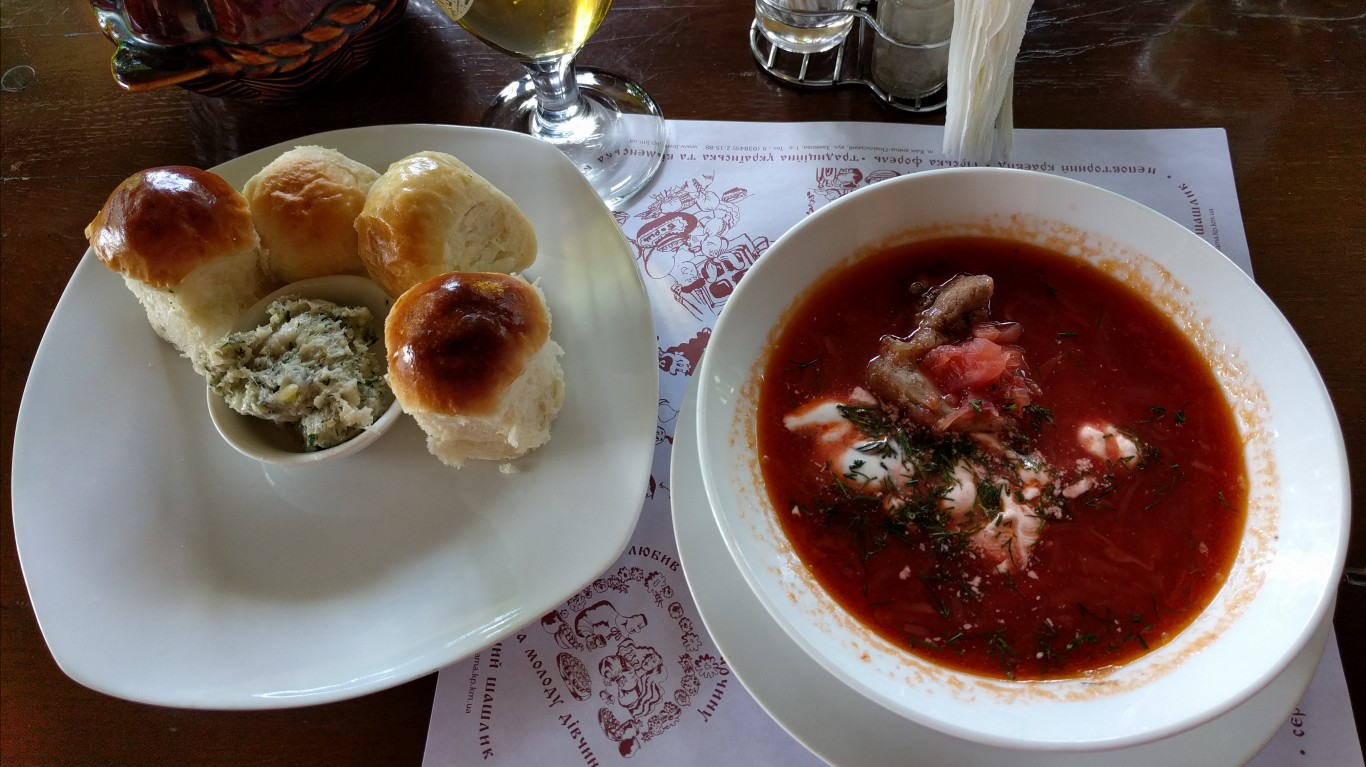
Pampushky
> What it is: Sweet fritters with various fillings
Pampushky are small, yeast-raised buns or doughnuts that are ubiquitous in Ukrainian cuisine. They’re made from wheat, rye, or buckwheat flour, and are usually baked but can also be fried, and are generally topped with buttery garlic sauce and served as an accompaniment to borshch. Sweet pampushky are usually filled with fruit jam and topped with powdered sugar.
[in-text-ad-2]
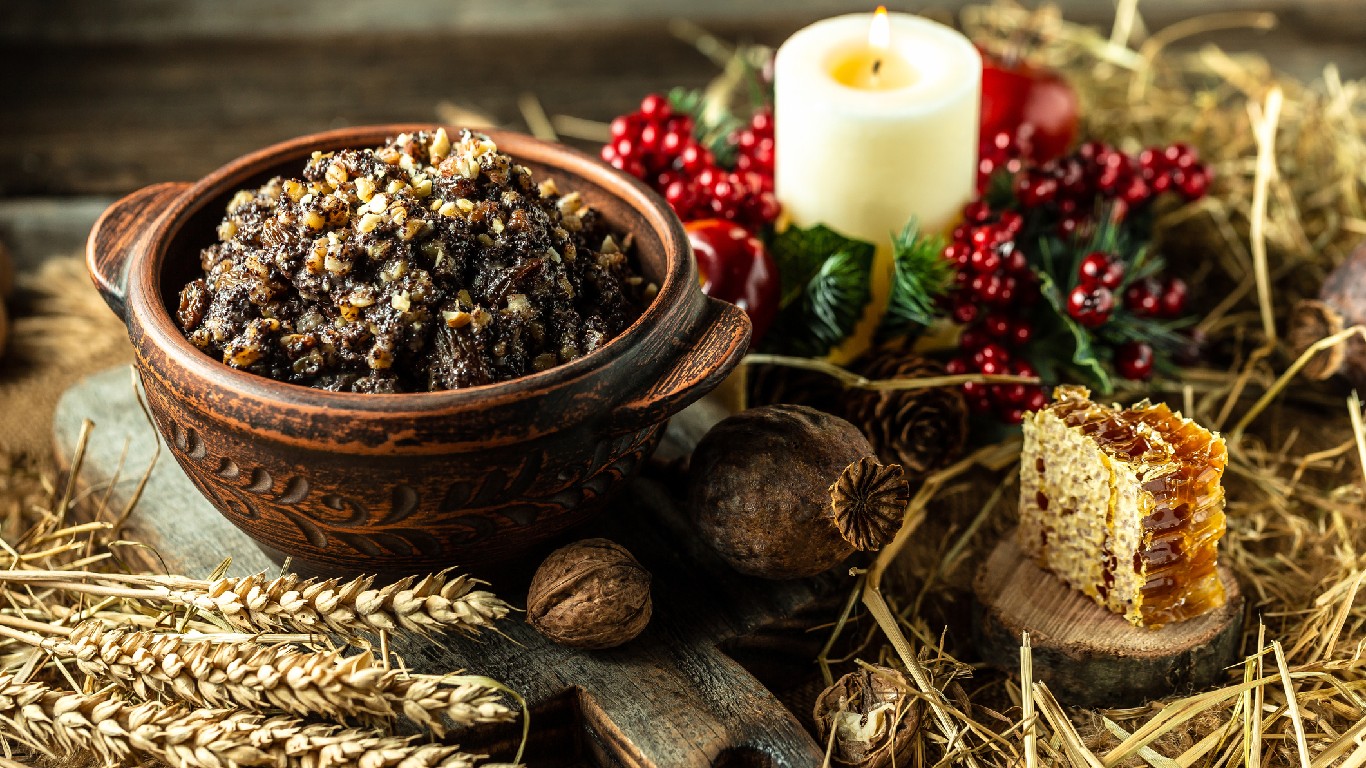
Kutia
> What it is: Traditional Christmas dish of nuts, dried fruit, and wheat berries
Kutia is an ancient dish made with wheat berries, poppy seeds, honey, and occasionally also dried fruits, walnuts, and raisins. As the first dish served at the traditional 12-dish Ukrainian Christmas Eve supper, the kutia is tasted first by the head of the family, who then throws a spoonful up to the ceiling; the amount that remains on the ceiling signified good luck in the year ahead.
Take Charge of Your Retirement: Find the Right Financial Advisor For You in Minutes (Sponsor)
Retirement planning doesn’t have to feel overwhelming. The key is finding professional guidance—and we’ve made it easier than ever for you to connect with the right financial advisor for your unique needs.
Here’s how it works:
1️ Answer a Few Simple Questions
Tell us a bit about your goals and preferences—it only takes a few minutes!
2️ Get Your Top Advisor Matches
This tool matches you with qualified advisors who specialize in helping people like you achieve financial success.
3️ Choose Your Best Fit
Review their profiles, schedule an introductory meeting, and select the advisor who feels right for you.
Why wait? Start building the retirement you’ve always dreamed of. Click here to get started today!
Thank you for reading! Have some feedback for us?
Contact the 24/7 Wall St. editorial team.
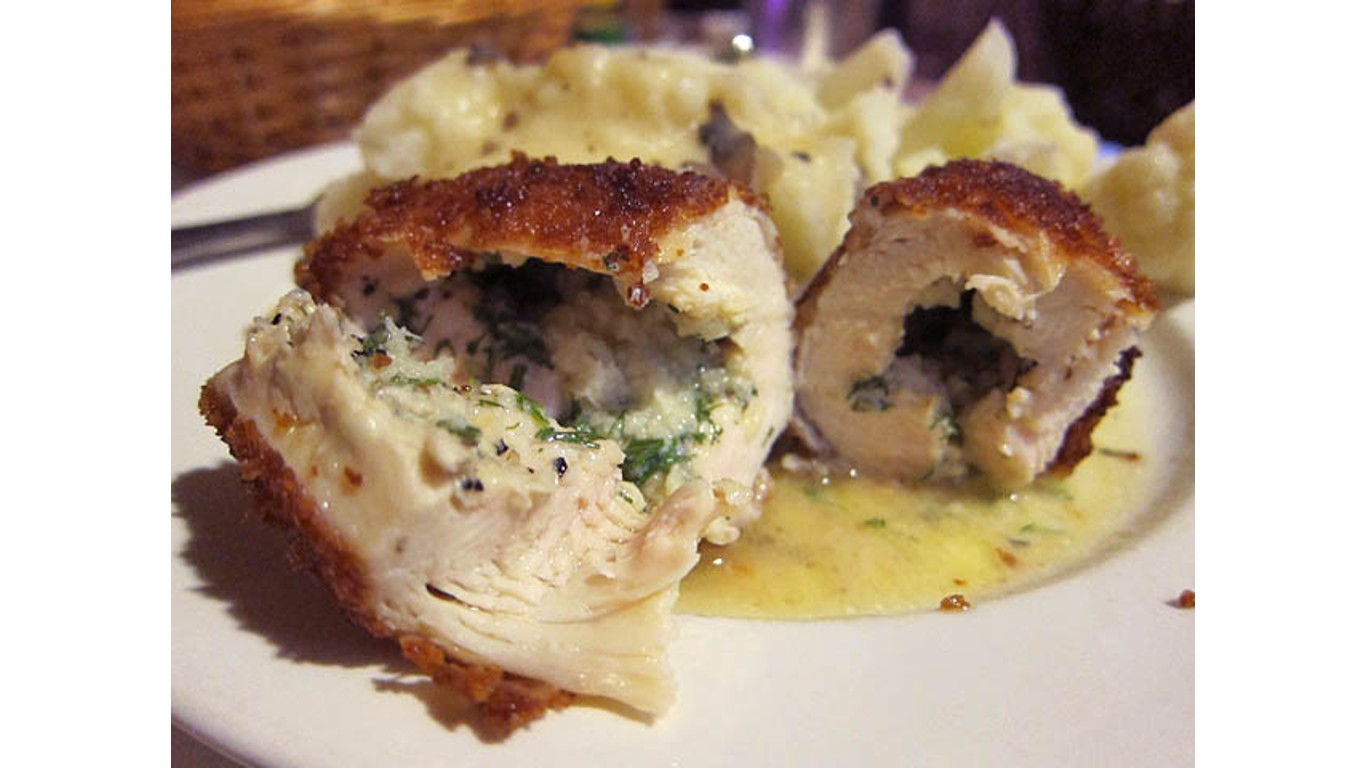
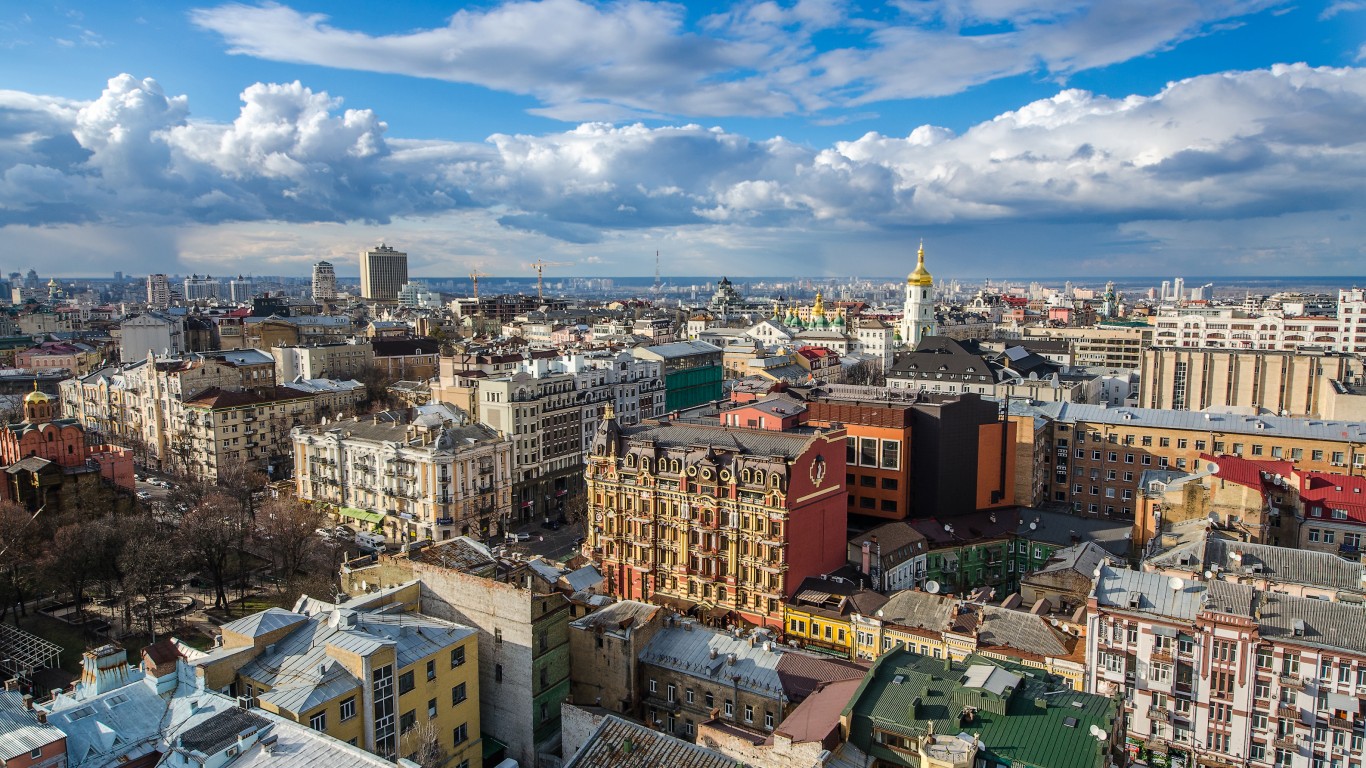 24/7 Wall St.
24/7 Wall St. 24/7 Wall St.
24/7 Wall St.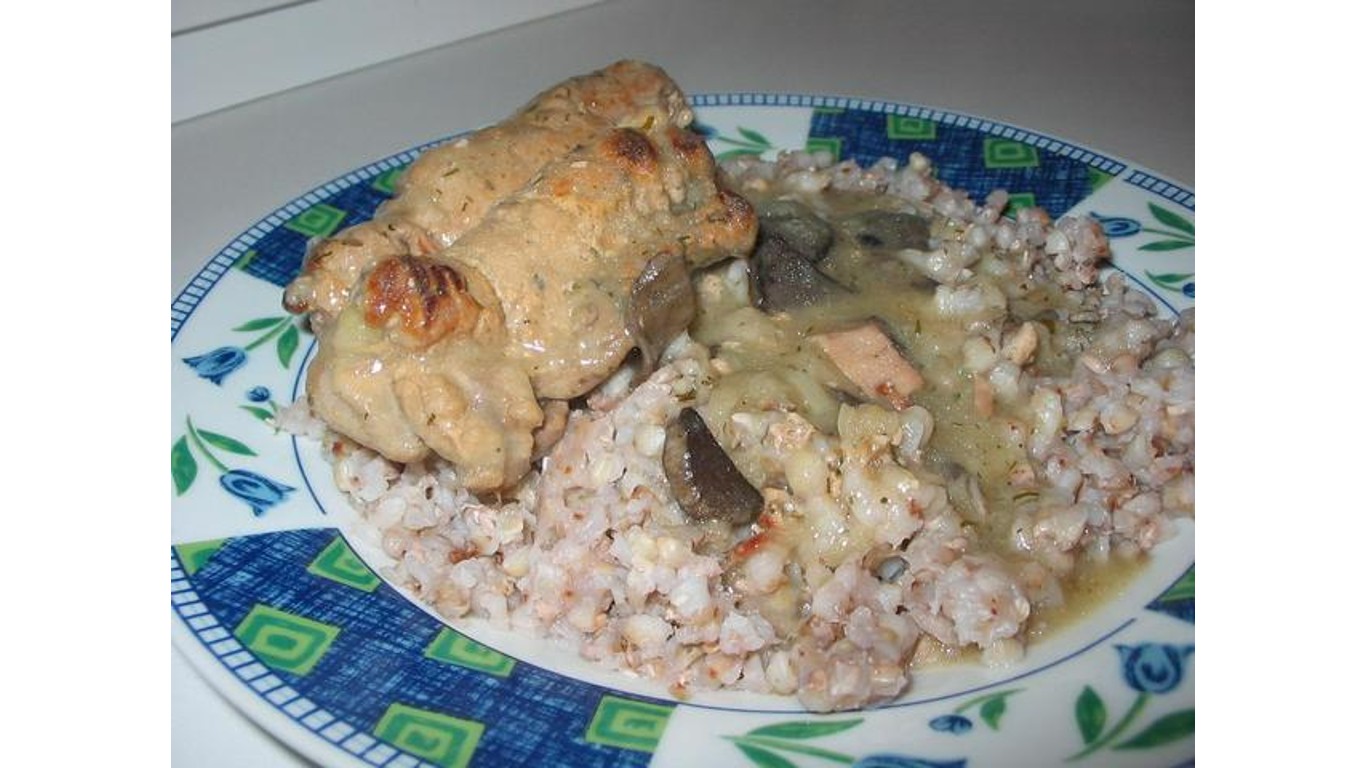
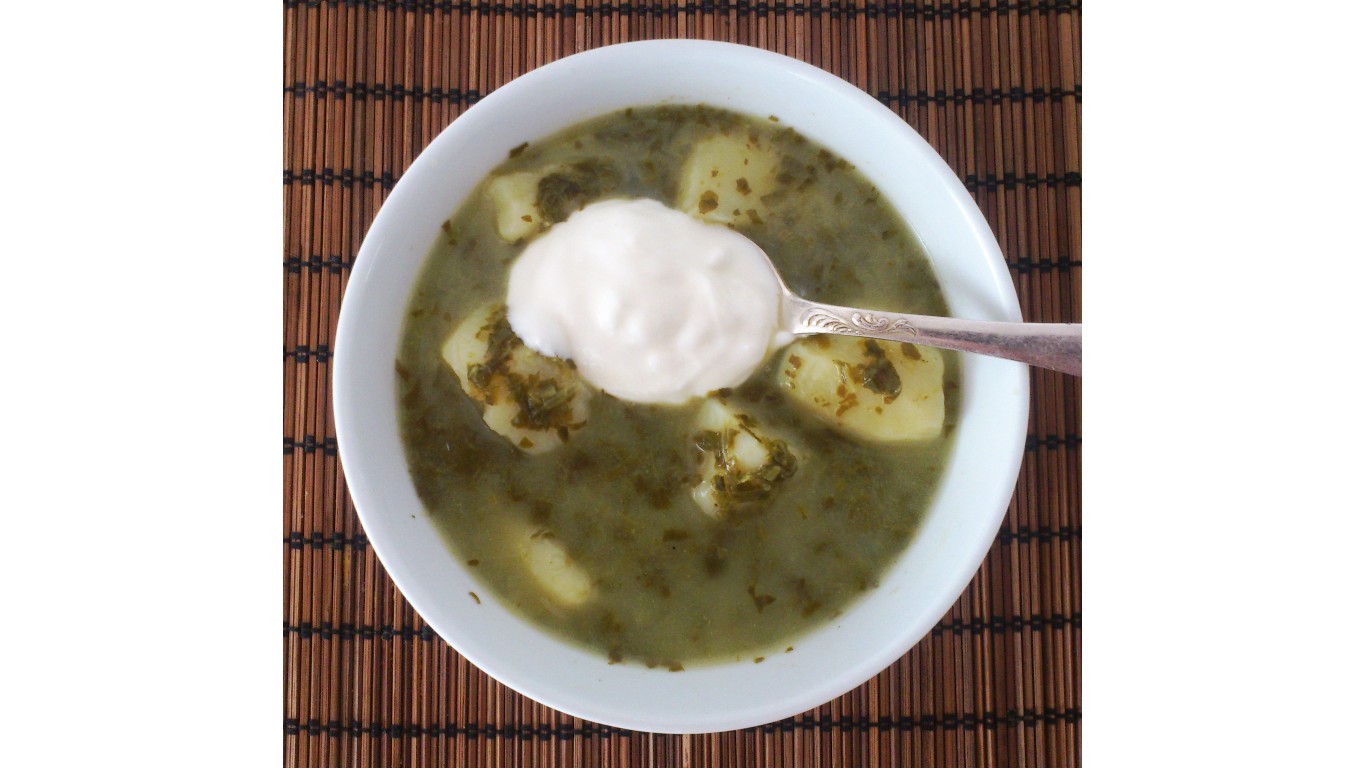
 24/7 Wall St.
24/7 Wall St.